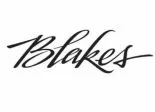The Income Tax Act was recently amended to enact unprecedented and potentially onerous public disclosure obligations on labour organizations and investment funds in which labour organizations or persons represented by a labour organization have an interest.
The amendment enacts a private member's bill to amend the Income Tax Act. It imposes unusual public disclosure requirements on labour organizations, including trade unions, and also on "labour trusts". A labour trust is defined broadly to include "a trust or fund ... established or maintained in whole or in part for the benefit of a labour organization, its members or the persons it represents". It is unclear whether the definition covers a trust or fund of which only a subset or a small number of such members or persons are beneficiaries. There are specific exemptions for registered pension plans, deferred profit sharing plans, employee life and health trusts, private health services plans, group sickness or accident insurance plans, group term life insurance policies, and supplementary unemployment benefit plans. However, many types of funded arrangements established by employers for the benefit of employees could potentially be caught if the employees are members of, or represented by, a labour organization. Examples of plans not specifically exempted include retirement compensation arrangements, group RRSPs and foreign pension plans.
The reporting requirements are extremely onerous and invasive. They include not only financial statements, but also, among other things, a list showing every disbursement above C$5,000 and the name of the payee and purpose of the disbursement.
Remuneration paid by the trust to officers, directors and trustees earning over C$100,000 must also be reported.
Unlike tax information, which the Canada Revenue Agency (CRA) is normally prohibited from publicizing, the amendment obligates CRA to publish these filings on the Internet in searchable format.
For "labour trusts", the first reports must be made for the 2016 fiscal year and are due June 30, 2017.
The amendment arose from a private member's bill and therefore was not subject to the same process as a tax bill originating with the Department of Finance. No explanatory notes have been published explaining the amendment's purpose or elaborating on its scope.
The amendment and the manner in which it was enacted have drawn considerable commentary, including criticism from affected labour organizations and federations. It is understood that a constitutional challenge is likely. As well, both major opposition parties have pledged to repeal the amendment if they are elected in the upcoming October 2015 election. Furthermore, even if there is no change in government, it is possible that the Department of Finance — which did not initiate the amendment — may consider recommending technical amendments to narrow the scope of the rules. Nonetheless, as of this writing, these reporting requirements form part of Canadian law.
Employers who have established funded arrangements for employees who are members of, or represented by, a labour organization should consider the potential ramifications of these rules.
The content of this article is intended to provide a general guide to the subject matter. Specialist advice should be sought about your specific circumstances.


